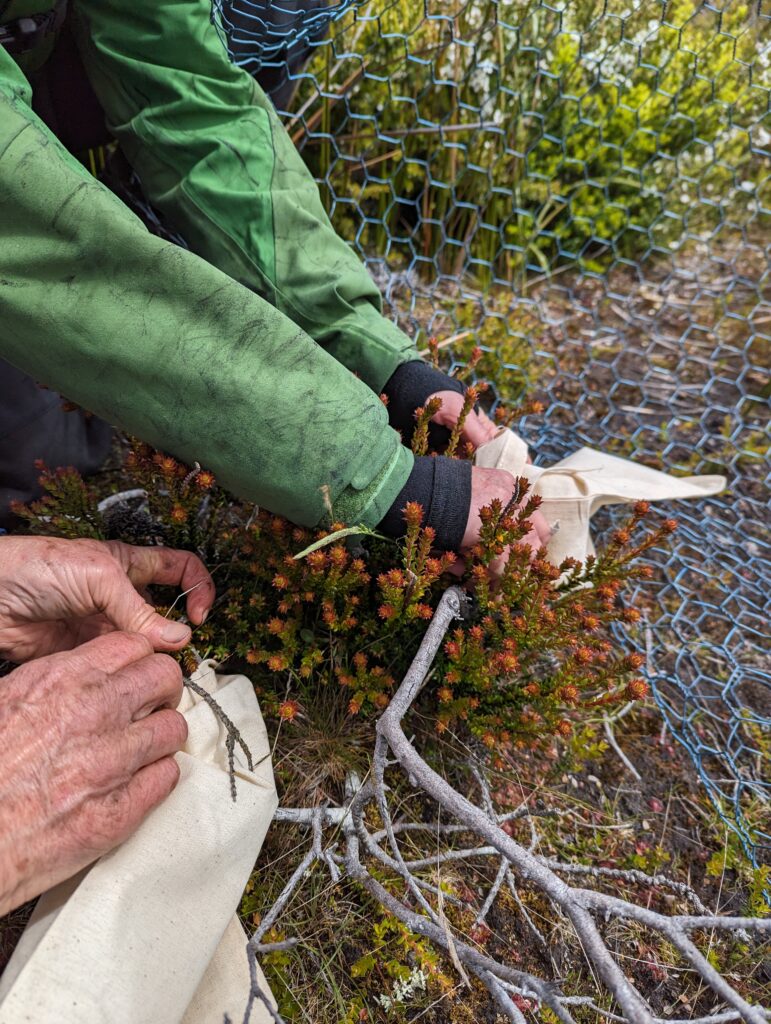Treading carefully across sections of flat rock and bracing against the strong winds whipping up from the Southern Ocean, a group of project staff from NRM South, the Royal Tasmanian Botanical Gardens, and volunteers from Threatened Plants Tasmania are visiting a small parcel of rough, windswept coastline near Southport that is mostly frequented by wombats, possums and pademelons. Travelling by car, boat and finally on foot, they have made the half-day trip from Hobart to collect fresh seed from an unassuming, but exceptionally rare plant species known as Southport heath.
‘This piece of coastline is the only place in the world that Southport heath grows wild’, explained Sophie Golding, Senior Project Officer for NRM South’s Threatened Plants project. ‘The fact that it only grows here, and on nearby Southport Island – where an insurance population was established just over 20 years ago – means it’s under serious threat from factors including weeds, root rot disease, fire and browsing. Our native marsupials seem to really love snacking on it too, so it has a hard time getting to a stage where it can flower and set seed’.
As part of an Australian Government funded project to protect this species, a select number of Southport heath plants were caged back in September 2021. Shielded from hungry marsupials, they would have a chance to recover, flower and set seed – which is now being collected by project staff.
The seeds will be stored at the Tasmanian Seed Conservation Centre as an additional insurance to protect the genetics of this endangered plant. James Wood, head curator at the Tasmanian Seed Conservation Centre, will be overseeing the storage and care of these precious seeds. ‘Having the seeds of this very rare plant, is like a fail-safe, said James. ‘If anything happens to the wild population, the fact that we have stored seeds means that we have options for re-establishing this species. While there are still challenges ahead to understand how to germinate the seeds and establish them in the wild, having these seeds is better than not having them at all.’
Future work will look at germination trials of Southport heath, which is the next challenge for conserving this understated plant.
This project is supported by NRM South through funding from the Australian Government’s National Landcare Program.
– ENDS-
